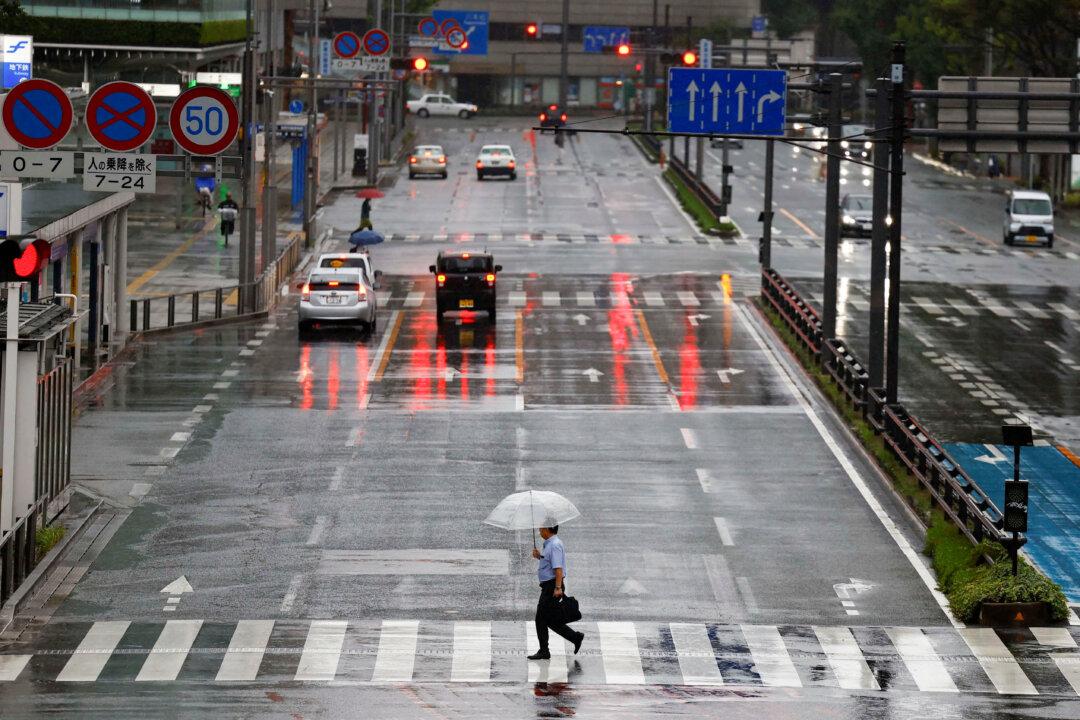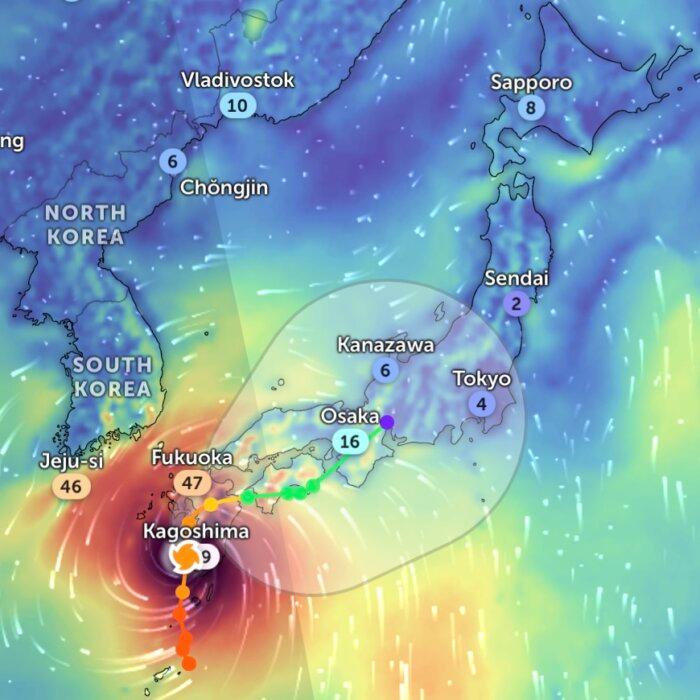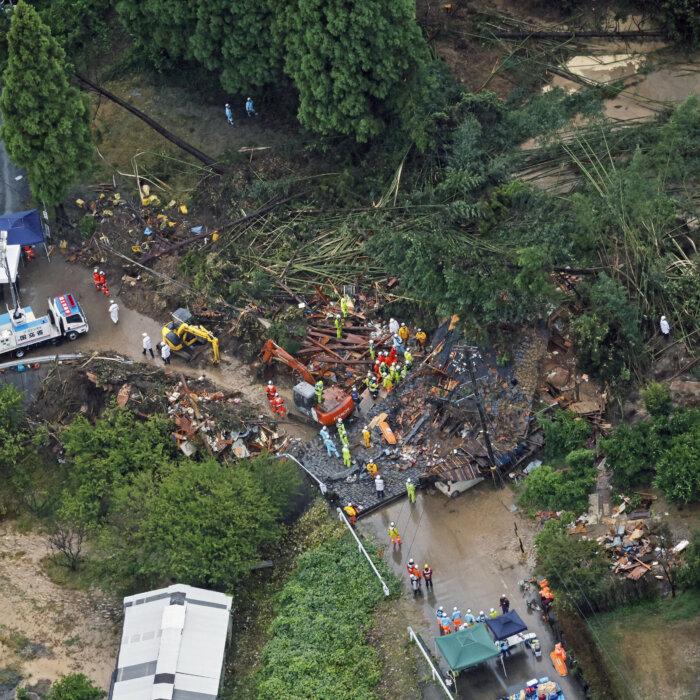Three people have been killed and 78 injured, according to figures from Japan’s disaster management agency.
Typhoon Shanshan has brought 112-mile-per-hour gusts, strong enough to blow over trucks on the island of Kyushu, in the far southwest of the Japanese archipelago.
On the island of Kyushu, in the far southwest of the Japanese archipelago, around 125,000 households are without electricity, according to the Kyushu Electric Power Company.
The Japanese authorities say they are concerned by the slow movement of the typhoon, which is bringing heavy rains to areas far from its center.
Millions of residents all over western and central Japan, and as far away as Yokohama, Japan’s second-largest city, have been warned they may have to evacuate.
The authorities say the heavy rain raises the risk of landslides.
Residents of the city of Fukuoka, on Kyushu, are hunkered down, with most shops shuttered.
Motoki Tanimura, 39, arrived on Thursday night from Osaka but feared she would be stranded after a work meeting Friday.
She said, “This typhoon’s path keeps changing, making it unpredictable, so it’s hard to get updates on the transportation situation. I’m planning to return on Saturday, but I’m not sure if I can make it.”
Auto Factories Closed
Auto manufacturer Toyota has suspended operations in all its factories while Nissan and Honda, and semiconductor firms Renesas, Tokyo Electron and Rohm, have temporarily halted production at some of their plants.Japan Airlines and domestic carrier All Nippon Airways have canceled hundreds of flights while many train, bus and ferry services in Kyushu have also been suspended.
Social media carried video footage of a South Korean airliner aborting a landing at Fukuoka airport due to high winds. The Boeing 737 finally landed successfully about 20 minutes later.
Yu Fukuda, 67, who runs a fish farm and restaurant in Oita prefecture, arrived on Friday morning to find three feet of floodwater inundating the building.
She said: “There were streaks on the windows and everywhere there were marks from mud and dirt, so I could tell how high the water had risen. I felt very sad.”
“I wish the typhoon had just passed quickly, but it stayed around here for a long time,” she said.
Typhoon Ampil, which struck the main island of Honshu, came just a week after a powerful earthquake off the southern coast of the country triggered a tsunami advisory.
The quake registered a magnitude of 7.1 on the Richter scale with its epicenter located in the sea off the eastern coast of Kyushu.
They are similar to hurricanes, which develop over the North Atlantic, and cyclones which develop in the South Pacific and Indian Ocean.
Typhoons develop in the Northwest Pacific and around 20 typhoons a year strike Japan, mostly between June and October.
In 1975 around 230,000 people lost their lives when Typhoon Nina led to the collapse of a dam in China’s Henan province.
Typhoon Vera was Japan’s deadliest storm, claiming 5,000 lives in 1959.







